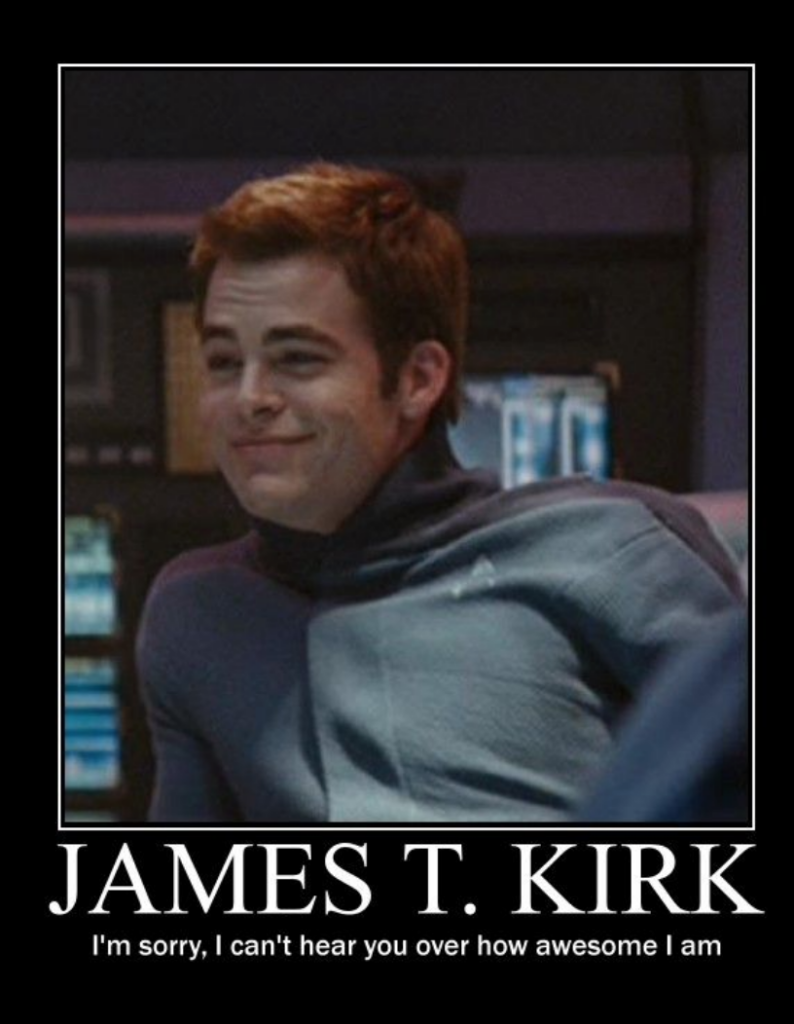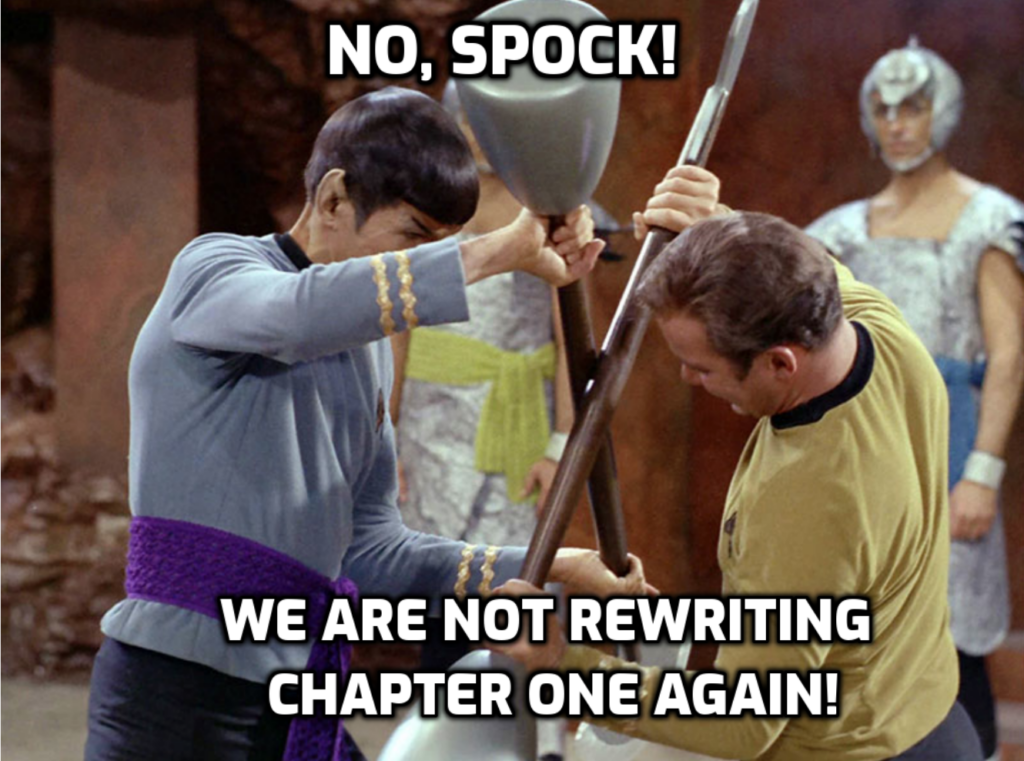
Many new authors slog out that first book, editing every word to perfection, revising, reworking, redoing. When I used to be a part of critique groups, it was not at all uncommon to find writers who’d been working on the same book two, five, eight and even ten years.
Still see them at conferences, shopping the same book, getting rejected, then rewriting, rewriting…..
Sigh.
Great, maybe Kathryn Stockett, the author of The Help took five years and 62 revisions to get her story published. Awesome for her. And yes, her book was a runaway success, but ‘One Title Wonders’ aren’t the norm.
Trying to hit big with one book is playing Literary Lottery with our careers. In the new publishing paradigm, it can be career suicide.
For most writers, it will be next to impossible to have a long-term successful career if our pace is a book or two a decade.
Go visit a bookstore, new or used and you’ll see my point. Most authors who’ve made it to legend status were (are) all talented/skilled, yes. But many were (are) also prolific. Their books take up entire shelves.
It isn’t a singular title, rather a large body of work that has made them into household names (J.K.Rowling, Debbie Macomber, Stephen King, John Grisham, George R.R. Martin, Isaac Asimov, H.P. Lovecraft, Liane Moriarty, Sandra Brown, etc.).
Does Writing Quickly Produce Inferior Work?

I’m a huge fan of Fast Draft. One of my early mentors, Candy Havens, is an amazing lady as well as a talented and prolific author. She’s who introduced me to this technique. I was initially skeptical—okay, terrified—but I hadn’t managed to ever finish a book. What did I have to lose? I gave it a try and can attest fast-drafting works.
Write your novel in two weeks a month, whatever, but write fast and furious. No looking back. Always forward. You can fix stuff later.
HERE is a post on HOW to balance a smidge of editing for use later.
I’ve heard some writers criticize this method, believing that writing at this increased pace somehow compromises quality. Many writers are afraid that picking up speed will somehow undermine craftsmanship, yet this isn’t necessarily so.
To prove my point, here are some interesting factoids about writing hard and fast, some taken from James Scott Bell’s WONDERFUL book The Art of War for Writers (pages 79-82):
- William Faulkner wrote As I Lay Dying in six weeks.
- Ernest Hemingway wrote The Sun Also Rises in six weeks.
- After being mocked by a fellow writer that writing so fast created junk, John D. MacDonald wrote The Executioners in a month. Simon & Schuster published it in hardback. It was also serialized in a magazine, selected by a book club, and turned into the movie Cape Fear TWICE.
- Ray Bradbury wrote Fahrenheit 451 in nine days on a rented typewriter.
- Isaac Asimov was the author/editor of over 700 books over the course of his career.
- Stephen King writes 1,500 words a day every day of the year except his birthday. He’s published over fifty novels, and I don’t even know how many short stories and novellas. Let’s just say he’s written a LOT. Could he have done this writing a book every three years? Every five?
NO.
While fast-drafting is NOT for everyone, I ask you at least entertain the concept. Stories written at a glacial pace aren’t, by default, superior (most are never finished).
I’ve posted on this before, and I like to explain the benefits of fast-drafting using—DUH—Star Trek.
Meet ‘Captain Kirk Brain’ and ‘Spock Brain’

…and fast.
Here’s my explanation of why writing faster than we ‘are comfortable’ can produce fiction just as good (if not better) than a work that’s been written slowly and deliberately. And, since all roads lead back to Star Trek…
When we write quickly, we get into The Zone and pass The Wall. We become part of the world we’re creating. Fatigue wears out the cerebral cortex (the ‘Inner Editor’ which I will call our ‘Spock Brain’).
Fatigue diverts us to the Limbic Brain (also known as the Reptilian or Primal Brain, or for today’s purposes—‘The Captain Kirk Brain’).
The Captain Kirk Brain is emotional, visceral and has no problem kissing hot, green alien women or cheating the Kobayashi Maru. He out-bluffs Klingons, outruns Romulans, starts brawls and throws the rulebook out the window.
He’s pure instinct, raw emotion and all action.
In short, Kirk is the stuff of great stories. No one ever got to the end of a book and said, ‘Wow, that book was riveting. The grammar was PERFECT!’

Captain Kirk Brain can do its job better—write fiction—when Spock Brain isn’t there saying, ‘But Captain, you’re being illogical. It clearly states in Strunk & White….’
The BEST line in the movie, Star Trek: Into Darkness is when the villain of the story (Khan) says to Spock, ‘You can’t even break rules, how can you expect to break bones?’ So, I’m going to apply this to writing.
Are you breaking enough bones?
Many writers hold back emotionally when writing. Why? They aren’t going fast and hard and so Spock takes over and he wants us to use a seatbelt and our blinkers. He isn’t the guy you want in charge if you’re going for the GUTS and breaking bones.
Kirk is Great for Action and Spock is Better for Rules

All garbage. DELETE everything.
Spock Brain is a perfectionist and wants us to take our time, make sure we follow all the rules and put the commas in the right spot. He’s seriously uncomfortable with ‘suspending disbelief’ and he tries to explain everything so others don’t get confused.
The trick is to hop on a cerebral crotch-rocket and outrun Spock. He is seriously uncomfortable with speeding and you can easily lose him in the school zones or the parking lot of Walmart.
Don’t worry, Spock will yell at us later….at the appropriate time which is during revisions.
Thing is, Kirk and Spock make the perfect team, whether on The Enterprise or in our head. They balance each other, but they are also antagonists. Kirk wants to put phasers on KILL, and Spock wants to check and see if the rules for the Oxford Comma allows this.
Blogging & Writing Quickly Helps Us Learn to Shut off The Spock Brain

Blogging helps us ship and get comfortable with going FAST. No maybe every piece isn’t the quality of a New Yorker article, but who cares? It’s a BLOG. We aren’t looking to win the Pulitzer.
We’re looking to get better riding a Cerebral Ducati and ignoring all of Spock’s protests that ‘This isn’t safe’ and ‘Where is our helmet?’ and ‘Clearly the speed limit forbids you going this fast.’
When we get the stories out faster, they’re more visceral. We get more practice with more stories since we aren’t letting Spock nit-pick for the next ten years…which he will do if Kirk doesn’t go running the other way despite Spock’s protests.
FYI, I am teaching a NEW class HOW to fast-draft TONIGHT. Story Master: From Dream to Done.
Remember, you get the recording for free with purchase 😉 *dangles candy*.
What are your thoughts?
Has your inner Vulcan taken over and edited all the life out of your story? Has Kirk been allowed too much sway and now you’ve got to let Spock whip it into structure shape? Does the idea of going faster scare you?
I LOVE hearing from you!
ON DEMAND AWESOMENESS (CLASSES)
On Demand Story Master: From Dream to Done (A.K.A. Fast-Drafting 101)
On Demand for a limited time. $55 for basic/$349 for GOLD. This teaches what I just covered in the blog above.
ON DEMAND: A Ripple in Time: Mastering Non-Linear Plotting
Taught by Kristen Lamb, $55 Delivered to YOUR computer to enjoy at your leisure.
On Demand Fiction Addiction: Write the Books Readers CRAVE!
On Demand for a limited time. Watch all you like from comfort of home. $55
On Demand: Harnessing Our Writing Power with THE BLOG!
On Demand for a limited time. $55 Basic/$165 for GOLD








21 comments
1 ping
Skip to comment form
“No, Spock! We are not rewriting chapter one again!” OMG, I’m laughing so hard! Yes. The struggle is real! Love you, man!
Things are always explained best with Star Trek analogies! I have become a big fan of fast drafting in the last couple of years. And interestingly enough, the number of my rewrites has gone down, not up. As you point out, the writing is better quality in the first place when we let Kirk brain outrun Spock brain while drafting. 😀
Writing has rules the same as painting, acting and music. Know them…then rearrange to suit yourself and just tell the damn story. I released four historical fiction western novels last year and have released two, so far this year.
I send each chapter to my beta readers as I finish them. Got this from one of them last week…”Ken, I didn’t begin to see most things herein until my 3rd and 4th read. Your writing is very “smooth” and errors/possible errors didn’t “pop” out to me.”
I do very little re-writing. What comes out first is usually what stays except for an occasional duplicate word or phrase change…pure instinct. I do a chapter every couple of days…Just tell the damn story.
I almost spit out my tea at the part about Kirk ordering the phasers set to kill while Spock argues about Oxford commas.
I participated in a bookclub discussion once for my first novel and one of the readers is a major Trek fan. She told me she loved how as the plot blew along and something seemed off, I’d “always Spock it out” and it would make perfect sense later in the story. That’s because I went in after the first draft and backfilled as needed. If I’d tried to figure it all out on the front end, I’d never have gotten it right. Or finished.
I strive for 1000 words a day, and that definitely helped me churn out a first draft. I slowed down and it feels like I am so far from being ready to get out there. I’ve been focusing on 1000 words a day again. What is the minimum for “speed writing”? Would you say it is more of a time frame than a pace?
Author
It depends on you. I wrote the first draft for my novel “The Devil’s Dance” in two weeks and wrote my novella “Deadline” in two days…but the tendonitis nearly killed me.
My three other books I wrote in 4 weeks. I think 4-6 weeks is a good time frame. Pick one. Remember the first draft can be bare. You can go back and flesh in detail later. A lot of my initial drafts look almost like screenplays since mostly dialogue.
If you prep ahead of time this is much faster. And I am not talking outlining but some fundamental groundwork. Pure pantsing is a formula to never finish anything in under a decade. It makes revisions a NIGHTMARE. I do what I call “plotsing.” I have the core story problem and a rough idea of how the problem is solved. Since I “know” my ending, the writing is MUCH faster and I can feel free to take a different route because I know how to get back on the story highway facing the correct direction.
What usually eats up all the time is the perfecting every sentence and going back over and over and over. Write that ugly draft first. We gotta dig diamond out of the ground BEFORE we start polishing.
Always stellar advice. Yes, diamonds always come out of the earth cruddy and a bit weird-looking. The second draft, I started by just doing major story posts. You know: FPP, Pinch Points, Mid Point, and the like. It helped so much the second time around! Thanks you for your insight. YOU’RE the gem!
“Yes, diamonds always come out of the earth cruddy and a bit weird-looking.” I’m putting this on a note card and taping it on my laptop.
Yes, a much needed reminder! I need to do the same actually.
Aaarrrgh!!! Checked my email late and missed your class! I was raised by Spock (my father) and Kirk (my mother), so my writing life most of the time feels screwed. I’ve gotten better at not focusing on the picayune, but some days my inner Spock tells me ‘you were able to do that then, why cant you do it now?’ Come to think of it, maybe my inner editor is Cardassian, not Vulcan…
Author
Don’t worry. I got you taken care of. We’ll send you the class and I have something extra for you 😉 .
I don’t outline and I’m a relatively fast drafter. My two brains are at war with each other over world dominion of the story, so I think I can do better (two books this year and four planned). Hopefully the more writing I will do will help that shake itself out. But I use cycling as I do the first draft. It’s a great tool for people who don’t outline and ensures that the story that comes out the other end is solid.
So agree with this. Have learnt to forge ahead rather than get stuck into revising and revising and losing momentum and threads of the story. Also Chris Pine-yum.
Off all the writing advice floating around the internet, this is without doubt one of the best pieces of advice. Nah, I will not proofread this comment.
Certainly explains the walls I keep running into! Kirk starts the race but Spock quickly interrupts…
That leaves me with a question. I’m writing an initially intended short story, which is begging me to go longer and in more detail (at least double, so ~14k+?). Writing the rest of it quickly should be doable (especially after reading this), but what about scenes I want to add in sections I’ve already written, should that wait until the rest is finished?
Sorry I missed your classes. Went to register and found out it was last week. Will you have it again?
Author
I am going to offer the recording for sale On Demand next post 🙂 .
Good morning, Kristin. Your e-mail about this exciting class popped up in my in-box this morning. I have never taken an online class, but I immediately went to WANA and found the class already full. No surprise! I usually take about 3 years to write each of my historical fictions . . . YOUR CLASS sounds like a real jumpstart for improving writing productivity AND creativity. So, now how do I sign up for the next one????
Bogged down in a rewrite. I’ve written the story four times. Spock brain is a pain. He’s trying to tidy up the corners. Trying to make things – make sense. I’ve tossed out hours of good writing – well – Spock has. I keep the good stuff in a file for short stories or just to read to amuse myself. Meanwhile the book, the book, has become it’s own chore with moments of delight. The joy of the first draft is a long forgotton skeleton under the twisted body of my Frankenstein.
KHAAAAAAN!!!!!!
I miss watching Star Trek re-runs, my dad had a faux wood tv with a tiny screen and it was in color! (Gramma had a black and white back then.)
Spock and Kirk are great metaphorical (is that the right word?) way to explain this. :)Right now Spock wins and he keeps pointing out that this and that isn’t logical and that you go back and have her use or think about them dagger before just yanking it out of nothing. I love Spock, he chases away the stupid.
Kirck is fun, but often gets me into trouble and makes more work. >_<
Author
Thank you Jessica for SO MANY wonderful and thoughtful comments. You just happened to find my blog when I was dealing with a lot of stuff at home (dental work then record flooding here in TX). I did read and enjoy just didn’t have the gas left to comment. I VERY MUCH appreciate such enthusiasm and support! Fabulous to meet you.
[…] fast do you write? Kristen Lamb considers how writing faster can improve your storytelling, while Martine Fournier advocates slow […]